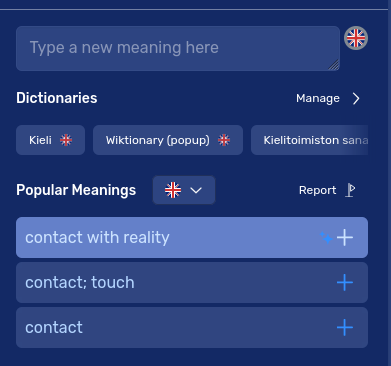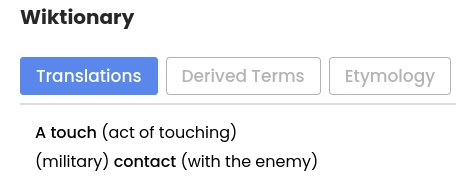The newly introduced AI generated definition is shown at the top of alternatives in a brighter color than the other definition. It suggests being better than the others. If you have a new word current, then an “enter” will copy that suggestion.
Unfortunately it is often not better. Let me explain in an example. See screen prints below.
The Finnish word “kosketuksesta” is an inflection of the word “kosketus” and means “touch, (military) contact” according to wiktionary. As you can see in the screen prints it suggests the definition “contact with reality” which is a translation of the words “todellisuuden koskeutuksesta”. That is not a definition of the word! It is a chunk out of the translation.



How can beginners trust the preferred suggestion in more difficult languages?
Those are way harder to verify. Also, the “preferred suggestion” spreads! Every time someone presses enter on a new word.
Studying a new language is hard enough. It would be of more value if the AI generated suggestion would be verifiably correct.
I understand the inclination to use the newest of the newest gadgets, but without proper testing (by a knowledgeable language learning expert), they can easily make things worse.
Can you please correct this feature, fast? As the wrong definitions are spreading as we speak.